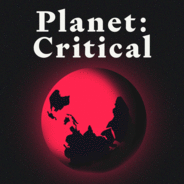The global majority are not responsible for global warming. A tiny percentage of the world's population are in positions of power, making decisions that impact the entire planet. These are the people who own and benefit from the fossil-fuelled means of production. Professor Matt Huber says taking power back from them is a class struggle—and cannot be done without building working class power. Building on arguments from his book, Climate Change as Class War, Matt says that rather than focusing on elite consumption we should target elite production, making material arguments for systems change that the working class can relate to. He also explains what the professional class of environmentalists fail to grasp about working class voters, why capital ignores public infrastructure, and why a Green New Deal is the only way to combat petro-privatisation.Support journalism for a world in crisis. This is a public episode. If you would like to discuss this with other subscribers or get access to bonus episodes, visit planetcritical.substack.com

PolitikWirtschaftTalk
Planet: Critical Folgen
Planet: Critical is the podcast for a world in crisis. We face severe climate, energy, economic and political breakdown. Journalist Rachel Donald interviews those confronting the crisis, revealing what's really going on—and what needs to be done. planetcritical.substack.com
Folgen von Planet: Critical
243 Folgen
-
Folge vom 18.07.2024Climate Change as Class War | Matt Huber
-
Folge vom 11.07.2024The Sixth Mass Extinction | Peter BrannenThe carbon cycle is more dangerous than an asteroid.An asteroid killed the dinosaurs but unstable carbon cycles caused the worse mass extinctions in earth’s history—and we are putting carbon dioxide into the air at a rate the earth has never seen before.I’m joined by science journalist Peter Brannen, author of The Ends of the World, to discuss how the carbon cycle has caused five out of the six mass extinction events — with the worst taking 10 million years for the planet to recover. Peter says all the drivers point that we are hurtling towards a sixth mass extinction if we don’t change rapidly change course, an event totally unprecedented in its man-made nature. This is an experiment in planetary systems going horribly wrong. We still have time to stop. If we don’t, the results could change the planet beyond recognition. Planet: Critical is 100% independent and community-powered. If you value it, and have the means, become a paid subscriber today! This is a public episode. If you would like to discuss this with other subscribers or get access to bonus episodes, visit planetcritical.substack.com
-
Folge vom 04.07.2024How A.I. is Driving Policy | Paul SchutzeA.I. is here—except it isn't. Or is it? A.I. is all over the news all of the time, and nations are scrambling to win the race and become the world leaders in this technology which we're told will change the world. This belief, this myth, is driving policy, investment, hype and conferences. It's the myth that is making A.I., a technology which has consistenly been over-promised and failed to deliver. Yet, nobody is asking if we want the changes we're told A.I. will deliver. The assumption is the future will be artificially intelligent. This means that other critical problems are falling off the agenda which is now dominated by the race towards a hyper-technological future—no matter the costs. Researcher Paul Schütze joins me to explore how these myths are making A.I. into a reality, with no consideration as to whether or not we want that reality. He explains the true cost of this A.I. futurism on the environment, social cohesion, and even our imagination. Planet: Critical is 100% independent and community-powered. If you value it, and have the means, become a paid subscriber today!Books referenced: Rethinking Racial Capitalism This is a public episode. If you would like to discuss this with other subscribers or get access to bonus episodes, visit planetcritical.substack.com
-
Folge vom 27.06.2024Climate Reparations | Esther AfolaranmiReparations provide legal rights.So argues lawyer and humanitarian, Esther Afolaranmi. Esther is the founder of the Golden Love and Hands of Hope Foundation in Nigeria, working on women’s liberation, girls’ education and lobbying the UN to meet the climate pledges promised at COP meetings. Esther joins me to discuss the links between climate, family planning, social justice and explains the corruption in Nigeria preventing the country from moving past the legacies of extraction and colonialism.Esther explains that climate reparations are not about money, but about granting equal legal rights to the world’s most vulnerable communities. She also says that as long as unethical leaders break the promises made at climate conferences, those communities will be forced to take more desperate action to secure their futures. This is a public episode. If you would like to discuss this with other subscribers or get access to bonus episodes, visit planetcritical.substack.com
